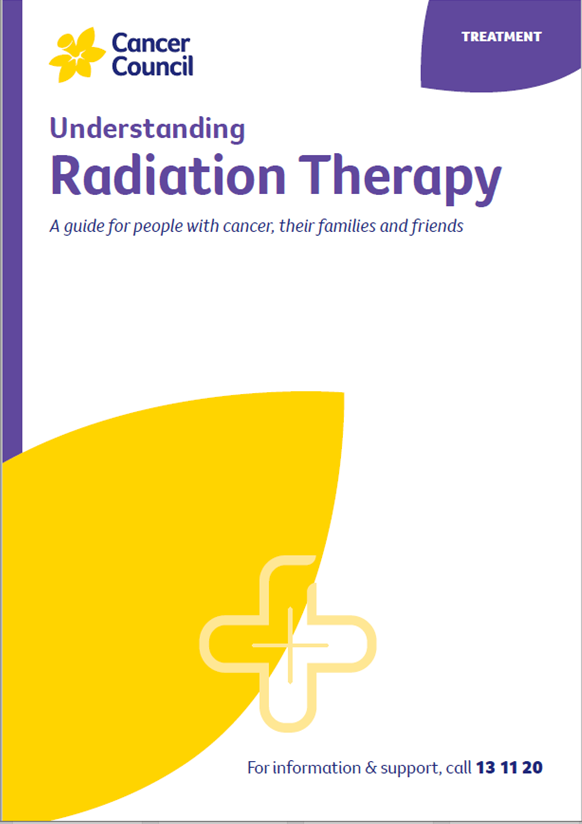- Home
- Cancer Information
- Cancer treatment
- Radiation therapy
- Common questions about radiation therapy
- Your health care team
Your health care team
During and after treatment, you will see a range of health professionals who specialise in different aspects of your cancer care. The main specialist doctor for radiation therapy is a radiation oncologist. You may be referred to a radiation oncologist by your general practitioner (GP) or by another specialist such as a surgeon or medical oncologist.
Treatment options will often be discussed with other health professionals at what is known as a multidisciplinary team (MDT) meeting. You may also see some allied health professionals to help you manage any treatment side effects.
To find cancer specialists, multidisciplinary teams and hospitals in NSW or ACT, you can visit the NSW Government website CanRefer.
Health professionals you may see
| radiation oncologist | treats cancer by prescribing and overseeing a course of radiation therapy |
| radiation therapist | plans and delivers radiation therapy to the radiation oncologist’s prescription |
| radiation oncology nurse | provides care, information and support for managing side effects and other issues throughout radiation therapy |
| medical physicist | ensures treatment machines are working accurately and safely; oversees safe delivery of radionuclide therapy; monitors radiation levels |
| medical oncologist | treats cancer with drug therapies such as chemotherapy, targeted therapy and immunotherapy (systemic treatment) |
| surgeon | surgically removes tumours and performs some biopsies |
| dietitian | helps with nutrition concerns and recommends changes to diet during treatment and recovery |
| speech pathologist | helps with communication and swallowing difficulties during treatment and recovery |
| social worker | links you to support services and helps you with emotional, practical and financial issues |
| psychologist/counsellor | help you manage your emotional response to diagnosis and treatment |
| occupational therapist | assists in adapting your living and working environment to help you resume usual activities after treatment |
| physiotherapist, exercise physiologist | help restore movement and mobility, and improve fitness and wellbeing |
| lymphoedema practitioner | educates people about lymphoedema prevention and management, and provides treatment if lymphoedema occurs |
→ READ MORE: Making treatment decisions
More resources
A/Prof Susan Carroll, Senior Staff Specialist, Radiation Oncology, Royal North Shore Hospital, and The University of Sydney, NSW; Katie Benton, Advanced Dietitian Oncology, Sunshine Coast Hospital and Health Service, QLD; Adrian Gibbs, Director of Physics, Radiation Oncology, Princess Alexandra Hospital Raymond Terrace, QLD; Sinead Hanley, Consumer; Dr Annie Ho, Radiation Oncologist, GenesisCare, Macquarie University Hospital and St Vincent’s Hospital, NSW; Angelo Katsilis, Clinical Manager Radiation Therapist, Department of Radiation Oncology, Royal Adelaide Hospital, SA; Candice Kwet-On, 13 11 20 Consultant, Cancer Council Victoria; Jasmine Nguyen, Radiation Therapist, GenesisCare Hollywood, WA; Graham Rees, Consumer; Nicole Shackleton, Radiation Therapist, GenesisCare Murdoch, WA; Dr Tom Shakespeare, Director, Cancer Services, Mid North Coast Local Health District, NSW; Gabrielle Vigar, Nurse Lead, Cancer Program, Royal Adelaide Hospital and Queen Elizabeth Hospital, SA.
View the Cancer Council NSW editorial policy.
View all publications or call 13 11 20 for free printed copies.



